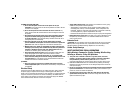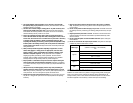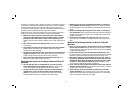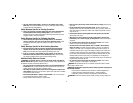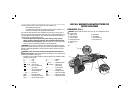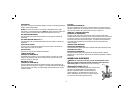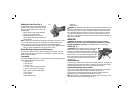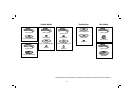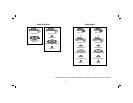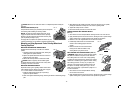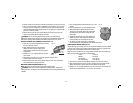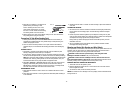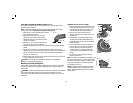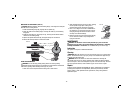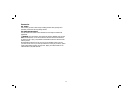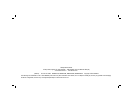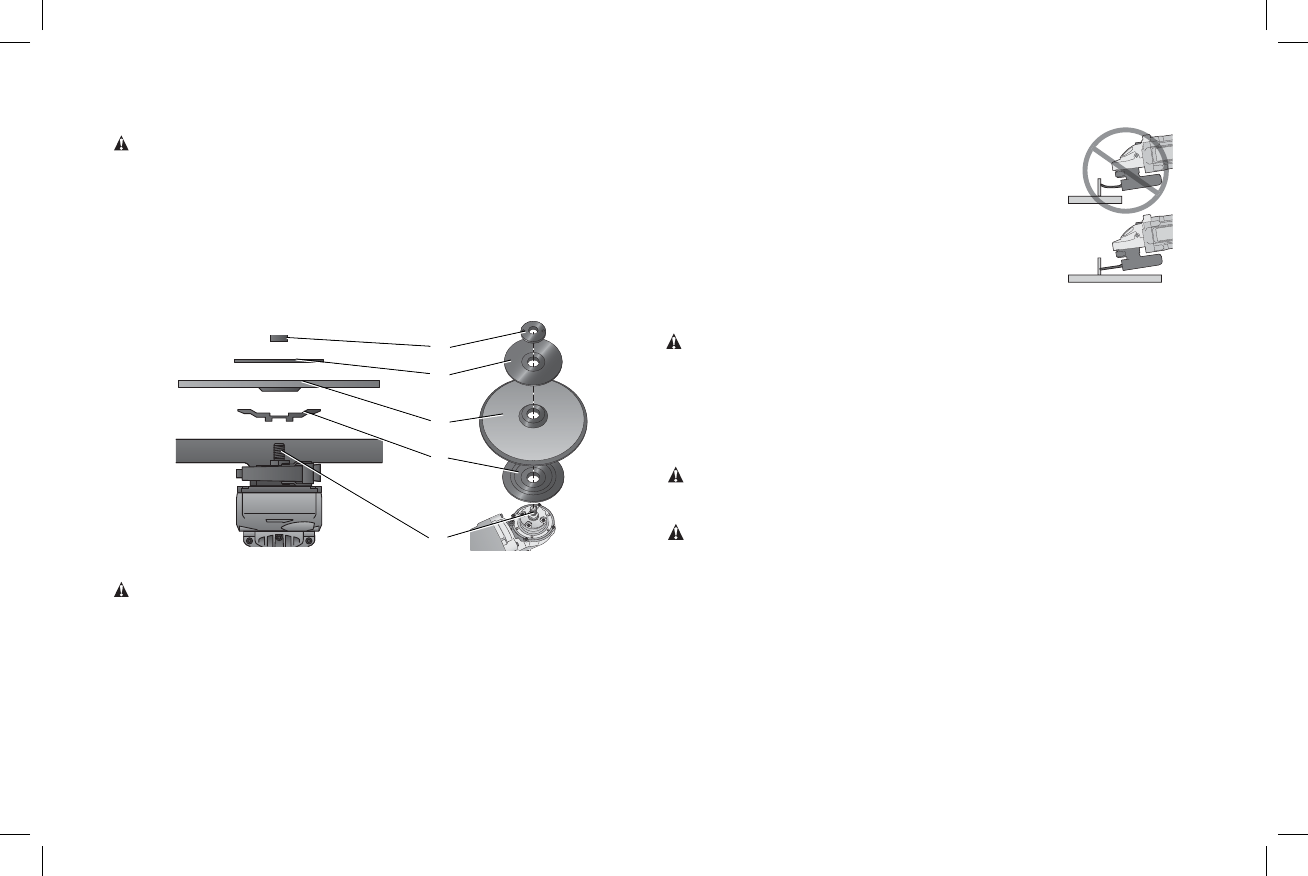
16
MOUNTING CUTTING WHEELS (FIG. 22)
CAUTION: Matching diameter threaded backing flange, outer flange and clamp nut
must be used for cutting wheels.
1. Install wheel backing flange (R), aligning flats on spindle (Q).
3. Place the wheel on the backing flange, centering the wheel (S) on the backing
flange pilot.
4. Install the outer flange (T) and clamp nut (U), ensuring that the wheel remains
centered on the backing flange.
5. Depress the spindle lock button (D) and tighten clamp nut with wrench.
6. Reverse the above procedure to remove the wheel.
Q
R
S
T
U
FIG. 22
USING CUTTING WHEELS
WARNING: Do not use edge grinding/cutting wheels for surface grinding
applications because these wheels are not designed for side pressures encountered
with surface grinding. Wheel breakage and injury may result.
1. Allow tool to reach full speed before touching tool to work surface.
2. Apply minimum pressure to work surface, allowing
FIG. 23
tool to operate at high speed. Cutting rate is
greatest when the tool operates at high speed.
3. Once a cut is begun and a notch is established in
the workpiece, do not change the angle of the cut.
Changing the angle will cause the wheel to bend
and may cause wheel breakage.
4. Remove the tool from work surface before turning
tool off. Allow the wheel to stop rotating before
laying the tool down.
MAINTENANCE
WARNING: To reduce the risk of serious personal injury, turn tool off and
disconnect tool from power source before making any adjustments or removing/
installing attachments or accessories. An accidental start-up can cause injury.
Lubrication
Your power tool requires no additional lubrication.
Cleaning
WARNING: Blow dirt and dust out of all air vents with clean, dry air at least once
a week. To minimize the risk of eye injury, always wear AS/NZS1337 approved eye
protection when performing this.
WARNING: Never use solvents or other harsh chemicals for cleaning the
non-metallic parts of the tool. These chemicals may weaken the plastic materials
used in these parts. Use a cloth dampened only with water and mild soap. Never let
any liquid get inside the tool; never immerse any part of the tool into a liquid.
Repairs
To assure product SAFETY and RELIABILITY, repairs, maintenance and adjustment
(including brush inspection and replacement) should be performed by certified
service centers or other qualified service organizations, always using identical
replacement parts.



